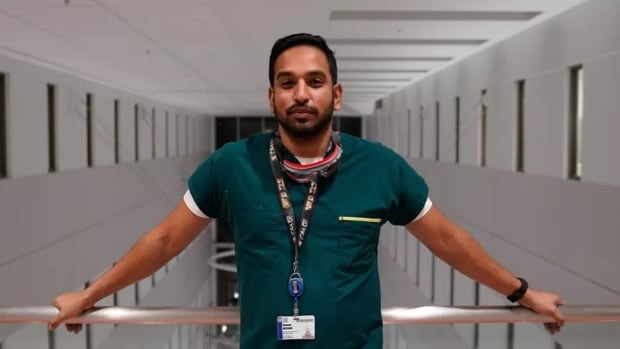
This First Person article is the experience of Naveed Hussain, a nurse at the McGill University Health Centre’s Mental Health Mission. For more information about CBC’s First Person stories, please see the FAQ.
Crisis. It’s a state I’ve become all too familiar with as a mental health nurse, but it was still unknown territory the day my patient threatened to kill me.
It was an evening shift almost two years ago. I had recently joined the psychiatry unit at the Montreal General Hospital and was finding my footing.
While walking the halls and passing out patients’ medications, I suddenly felt a presence close behind me.
A chill ran through me as I whirled around and came face to face with a young woman — a patient of mine who was prone to sudden and violent outbursts.
Her hands were balled into fists and raised toward me. She began hollering that she was going to kill me.
I was cornered and alone. Fighting my natural fight-or-flight response, I knew I needed to push aside any preconceived thoughts I had about people in crisis and attempt to de-escalate the situation.
My patient was experiencing an episode of psychosis and suffering from severe auditory and visual hallucinations. Amid the screaming, I realized she wholly believed I was someone from her past who had harmed her before.
In my previous 20 years working as a clinical nurse, I’d received training on how to care for people from all walks of life. But nothing could have prepared me for an encounter like this.
So I thought on my feet. Taking an open stance, I put my hands up slowly and reassured her in a calm yet assertive voice, saying that I was her nurse and orienting her in the space we were in. I negotiated with her to take her medications, and the crisis ended without anyone being harmed.
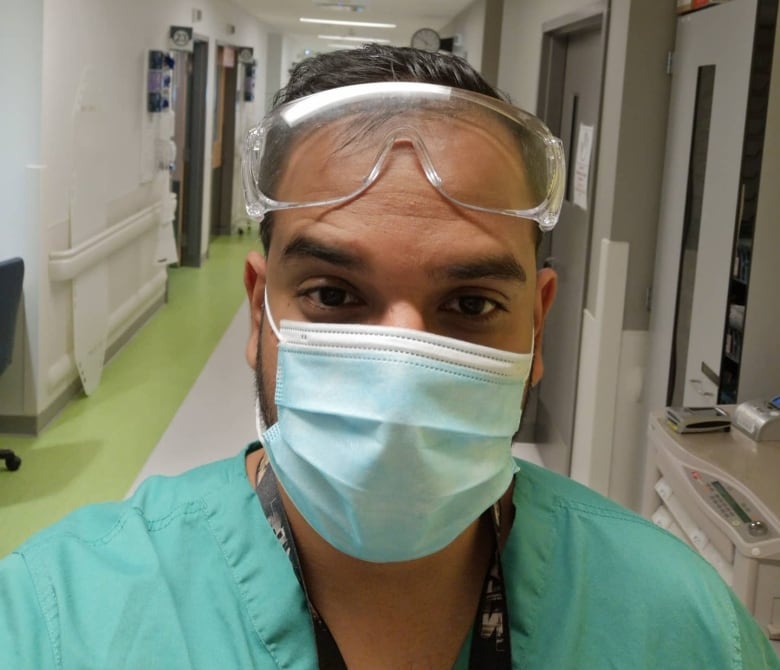
Looking back, this moment — one that struck fear in me like never before — is when I realized I had the skill and resolve to work in this department.
It also forced me to confront the stigmas I wasn’t aware I held about mental health, even as a health-care professional.
Finding my balance in my father’s footsteps
Caring for people with mental health issues runs in my family.
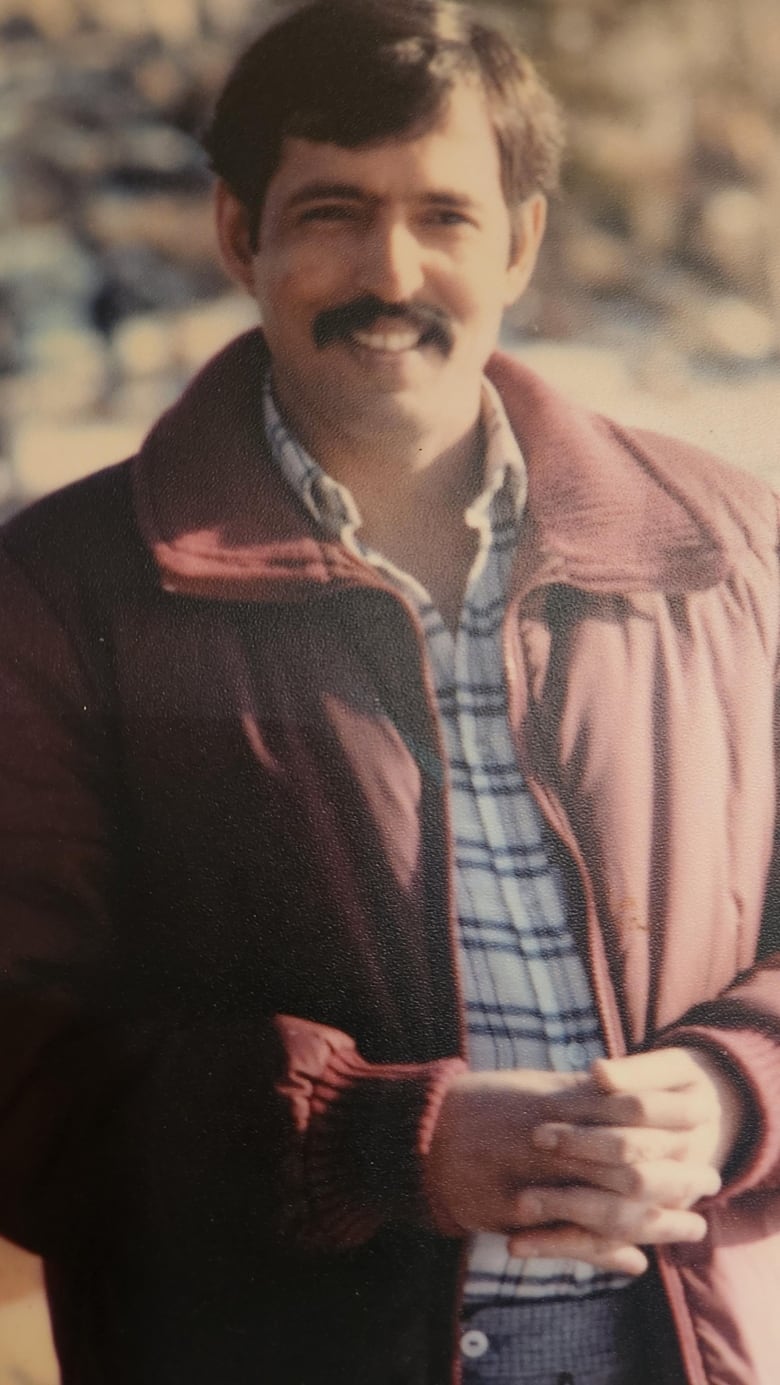
Both my father and uncle worked in the psychiatry department at the Montreal General Hospital for more than three decades — my father as a psychiatric aide for 36 years, my uncle as a nurse.
An immigrant from Pakistan who found his calling in Canada, my father was proud to work with mental health patients. He said it was fulfilling to help others in their most vulnerable moments.
Now, as a nurse in the same unit where he’d worked for so many years, I finally understand what he meant. The work is inspiring and the impact you can make on your patients can be profound. But it took me time — and some growing up — to end up in the space I now find myself in.
I held stigmas about mental health when I first started. I used to see a person experiencing a mental health crisis in public and avert my gaze. There was always that fear that they were a danger to themselves or me.
But spending the past two years learning more about my patients and how they view their world has changed everything. I learned that for many, their concept of reality is twisted or entirely broken. Others experience deep and frightening crises, ones they often can’t understand or communicate.
My patients are not unhinged and they are not hell-bent on hurting anyone. They are frightened, at their breaking point and in need of treatment. Failing to provide the support they need is the real source of violence.
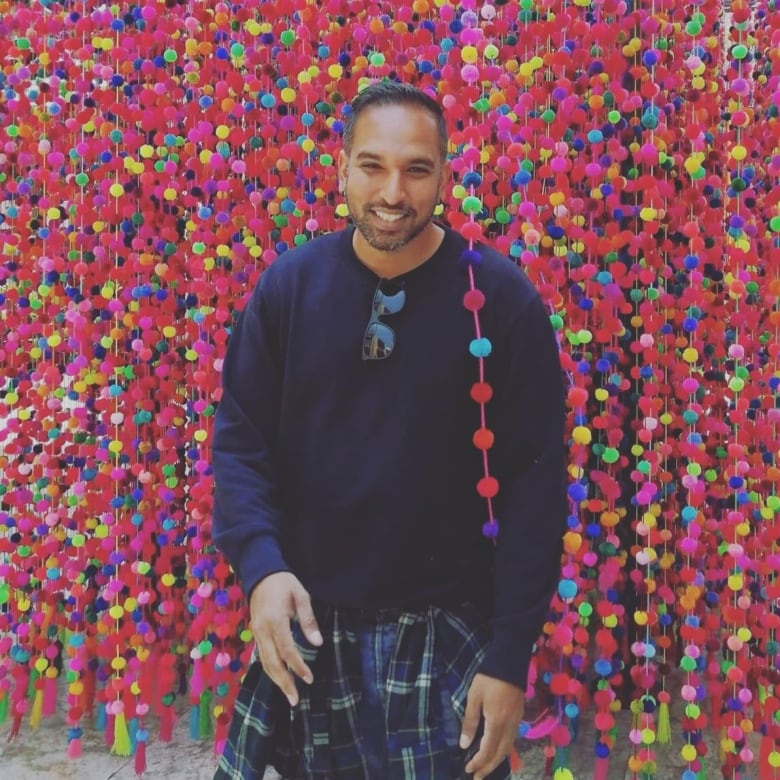
Taking this leap of faith and following in my father’s footsteps is a challenge I am forever grateful I faced.
Like my father, I feel more fulfilled than ever knowing I am providing comfort and understanding to a population that needs all the help they can get — the help they deserve.
In helping my patients, I feel grounded both personally and professionally for the first time in my life. Working with them has taught me how to be a better communicator, empathizer and listener — whether that’s in the hospital, on the street or in my own home.
Failing system
Working in mental health care has also shown me where Quebec’s health system is failing these patients.
I’ve seen people urgently needing assistance and supervision but who are unable to receive it, leading them to commit violent acts against themselves or others in our communities and paving the way for even more stigma against them.
In psychiatric units across the province, we do not have the beds nor the resources to keep caring for them to the extent they need.
Our goal as mental health-care professionals is to improve the lives of our patients and be able to care for them adequately when they’re in crisis. We cannot do this while Quebec is facing a mental health-care crisis of its own.
I fear this is an emergency of epic proportion. We must enhance accessibility for patients by reducing wait times for hospital beds, appointments and treatments as well as allocating increased resources to mental health services.
We need to start prioritizing these patients. And I will be there every step of the way.
Working as a mental health nurse has changed my life for the better, and I can only hope to repay my patients by helping them get the care they need and are rightfully owed.
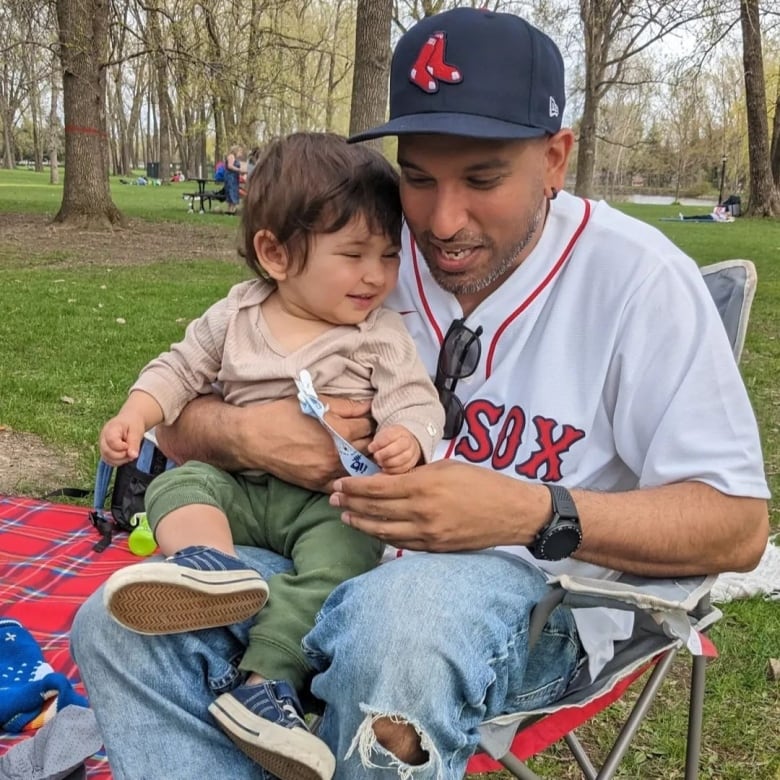
I’m also constantly working on overcoming my biases and apprehension of approaching people in crisis. I can certainly attest to how difficult it is.
But I now know that where there’s disconnect, I can be a tether to reality. Where there’s aggression, I can offer therapeutic and positive energy. And when someone’s on the edge, I can talk them off and help us find common ground.
In the chaos, I’ve found balance and stability in my life.
CBC Quebec welcomes your pitches for First Person essays. Please email [email protected] for details.